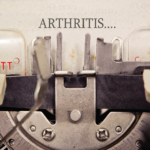
Denis Cristo / shutterstock.com
AMSTERDAM—Molecular signatures in synovial tissue that can be gathered through biopsies are a largely untapped resource that could help guide treatment for rheumatic conditions, an expert said at the EULAR: Annual European Congress of Rheumatology.
“I’m convinced that looking into synovial tissue provides us with tools to not only understand mechanisms of disease in rheumatoid arthritis or psoriatic arthritis, [but] it might also give us a tool to make a clinical decision,” said Bernard Lauwerys, MD, PhD, professor of rheumatology at Université Catholique de Louvain in Brussels.
In a session on emerging biomarkers in psoriatic arthritis (PsA), Dr. Lauwerys said not much data has been amassed through molecular examination of synovial tissue in the disease. But insights into rheumatoid arthritis (RA) offer encouragement for what could emerge.
For example, examinations of cell populations before and after treatment with adalimumab in RA patients have found that several subtypes decrease, particularly CD68-positive cells. This offers up a “very good marker” for treatment effect, he said.1
Molecular profiling for different treatments shows some—but not all—treatments have roughly the same effect in RA patients, he said.
Rituximab, methotrexate and tocilizumab tend to have an overlapping effect, but the effect doesn’t overlap with adalimumab’s.2
“Those treatments do quite the same from a molecular point of view in synovial tissue, and this is a decrease in T cell activation,” Dr. Lauwerys said. “By contrast, there is really no common effect between adalimumab and any of those drugs. Whether a transcript is downregulated or upregulated by adalimumab doesn’t predict what will be the effect of tocilizumab.”
Such information can inform clinical decision making, he said.
The Studies
In a study of PsA and other spondyloarthritides, examination of tissue from 60 synovial biopsies found a common denominator in overexpression of a TGF-beta myogenic signature.3
In his group’s own unpublished evaluation of synovial tissue, “quite a bit of heterogeneity in molecular patterns” was found among patients with spondyloarthritides. But more work is needed to harness the power of this information, Dr. Lauwerys said. He hopes for the development of what he called a “molecular taxonomy,” groupings based on what these patterns are saying. The EULAR Synovitis Study Group is at work in this area.
“This will be interesting if we can link this to medical decisions,” he said.
Serum Biomarkers Needed
Christopher Ritchlin, MD, MPH, said the need for serum biomarkers in PsA is clear, noting the efficacy of one of the primary tools used now, C-reactive protein (CRP), is severely limited.


